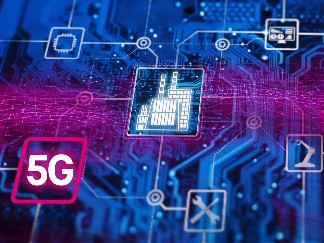
5G technology represents the fifth generation of wireless communication networks, and it has the potential to significantly impact society in various ways. Here are some key areas where 5G is poised to make a difference:
Faster Speeds and Lower Latency: 5G offers download speeds that can be up to 100 times faster than 4G, and significantly reduced latency (the time it takes for data to travel from source to destination).








This will enable smoother experiences in applications that require real-time interactions, such as gaming, virtual reality (VR), and augmented reality (AR).
IoT Integration: The increased capacity of 5G networks allows for the simultaneous connection of millions of devices. This is crucial for the expansion of the Internet of Things (IoT), enabling smarter cities, homes, and industries.
New Business Models: 5G capabilities can enable new business opportunities and models. Industries ranging from transportation (autonomous vehicles) to healthcare (remote surgeries) can benefit from the increased connectivity and data transfer capabilities.
Job Creation: The deployment and maintenance of 5G infrastructure can create jobs, ranging from technical positions in engineering and installation to roles in service delivery and applications development.
Telemedicine: With high-speed, low-latency connections, telehealth services can expand, allowing doctors to conduct remote consultations and even surgeries using robotic tools controlled in real-time.
Remote Monitoring: Wearable health devices can transmit data instantly, allowing healthcare providers to monitor patients in real-time, leading to quicker responses in emergencies.
Enhanced Learning Experiences: With 5G, students can engage in immersive learning experiences using AR and VR technologies, making subjects more engaging and interactive.
Access to Resources: Rural and underserved areas can benefit from improved internet connectivity, facilitating better access to educational resources and online courses.
Traffic Management: 5G can improve traffic flow through connected traffic lights that adapt to real-time conditions. It can also support smart vehicles that communicate with infrastructure to enhance safety and efficiency.
Energy Management: Smart grids can manage energy distribution more effectively, optimizing the supply based on real-time usage data.
Digital Divide: While 5G has the potential to bridge the digital divide, it could also exacerbate existing inequalities if access to the technology is not equitable. Urban areas may develop faster than rural ones, intensifying disparities.
Privacy and Security Concerns: With increased connectivity comes greater concerns about data privacy and security. The more devices that are connected, the more points of vulnerability exist, necessitating robust cybersecurity measures.
Energy Efficiency: Although 5G networks can be energy-intensive, innovations in network design can reduce per-bit energy costs. This could lead to more efficient use of resources across various sectors.
Sustainable Practices: 5G can support applications that monitor and improve energy use, contributing to sustainability efforts across industries.
5G technology has the potential to reshape society in profound ways, from enhancing economic growth and improving healthcare outcomes to facilitating smarter cities and more equitable access to information. However, its widespread adoption also presents challenges that must be addressed, particularly concerning security, access, and its social implications. Stakeholders, including governments, businesses, and communities, will need to work collaboratively to ensure that the benefits of 5G are realized inclusively and responsibly.


Leave a Reply